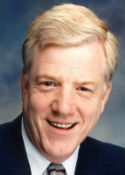Tom managed a large sporting goods store that carried a wide selection of merchandise ranging from fishing equipment to tents. All 12 employees were assigned the same tasks: arranging merchandise, assisting customers, receiving shipments, and running the cash register. Tom made little distinction between tasks assigned to each person.
Assigning everything to everyone may not be the best strategy to get the most out of your staff. The apostle Paul wrote, “There are different kinds of gifts…” (1 Cor. 12:4 NIV). Because not everyone is strong at everything, a wise manager will develop an effective system to manage the diversity of his or her staff to get the best out of each team member.
Tom soon became frustrated with some of his employees. Mary, for example, did an outstanding job of arranging merchandise, but struggled when working directly with customers to learn which products they wanted.
Kim was a good listener and very effective in suggesting additional products to customers, but she was sloppy in arranging merchandise. Bill was effective when assigned a specific task, such as boxing up the summer clothing products and bringing out the fall hunting gear, but when asked to do a generic task, such as straightening up the book department, he took all day.
The first step in managing diverse gifts effectively is taking the time to understand your staff. King Solomon wrote, “Be sure you know the condition of your flocks, give careful attention to your herds” (Prov. 27:23 NIV).
Watch your employees while they work, and observe which tasks they do with enthusiasm and which ones seem to drag them down. Take time to ask them which duties they enjoy most—and least. Balance their responses with your own observations.
With this information in hand, consider redefining jobs based on what each person does well and likes (as much as possible). For example, Tom assigned Mary the job of setting out new merchandise and keeping the displays orderly, a task which took most of her work shift.
As a result, Mary was energized and became more enthusiastic. She still struggled when helping customers but now spent less time interacting with them.
When Kim was relieved of the responsibility for keeping the shelves straight, she was able to focus on helping customers and asking good qualifying questions. She was delighted to be released from what she thought was a mundane job, and she enjoyed serving customers. As a result, sales increased.
When Tom realized that Bill needed specific instructions in order to be effective, he started giving him very specific tasks and direction. The more detailed the instructions, the better Bill accomplished the work, and the more satisfied with his job he became.
Other staff members would have felt micro-managed if given such detailed directions. The key was to understand how each employee could most effectively be managed and directed.
Tom also found out which outdoor sports each employee enjoyed, and their level of expertise. Connor, who enjoyed rock climbing on his days off, was channeled into helping customers interested in rock climbing. Kim, who loved fishing, helped customers select trout flies, while Mary, the hiker, helped customers select hiking shoes and suggested the best hiking trails.
In most organizations, staff members need to wear more than one hat, even if their main focus is on their areas of strength. Scripture instructs us to “strengthen the hands that are weak” (Heb. 12:12 NASB), and managers still need to help their staff grow and become more effective.
Thus, Tom worked with Mary to help her become more effective in interacting with customers, which was still an important skill for her to learn.
Taking the time to learn about the strengths of each employee, and then channeling those strengths to their greatest advantage, will ultimately increase your sales. Work efficiency and job satisfaction will also increase (resulting in reduced employee turnover) as each person works in the areas of their greatest strength.
Steve Marr has learned from 40 years of business experience that God's way works.
As an author, speaker and business consultant, Marr helps companies and organizations apply the ancient wisdom of the Bible to avoid the common mistakes and headaches of growing a business.
Marr offers spiritual and practical insights through one-on-one consulting, a monthly syndicated business column, his best-seller books Business Proverbs, Roadmap to Success, and the 2007 release of Integrity in the Workplace, and the one-minute radio feature "Business Proverbs," which can be heard on over 1,200 radio stations internationally. He also provides radio interviews on time sensitive business topics and how being a godly business person brings glory to the Lord.
Marr uses compelling case studies to generate discussion on the business and Biblical principles he offers. Steve involves the audience to make each event practical in application. Seminar notes are available to allow particpants to act upon the "take aways."
He can help you, your business or group find peace of mind, hope and satisfaction in doing business God's way.




